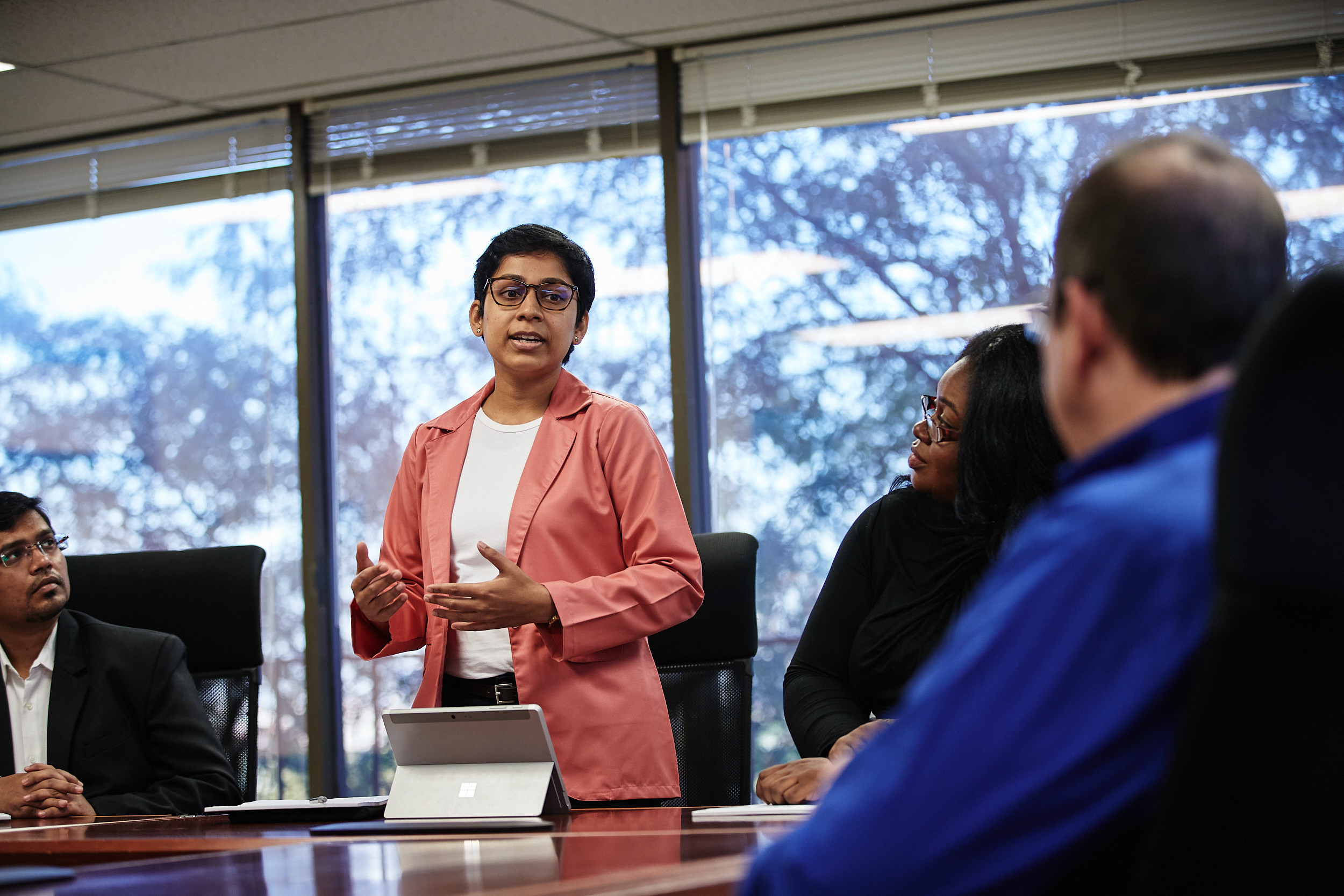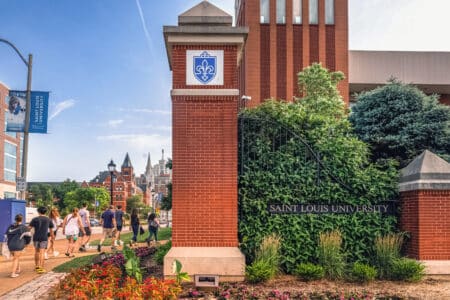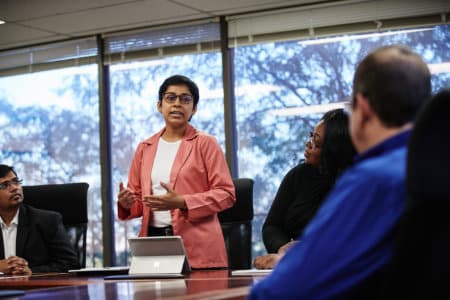When considering a Master of Public Health (MPH) programme, many students search for a mix of affordability, flexibility, and great practice experience. Saint Louis University’s (SLU) College for Public Health and Social Justice (CPHSJ) offers all of this and more.
Affordable city, great funding opportunities
The college, ranked among the top 25% of public health programmes by US News & World Report and accredited by the Council on Education for Public Health (CEPH), is located in a vibrant, metropolitan Midwest city: St. Louis, Missouri. It is one of the most affordable major cities in the US for young professionals, ranking fourth on personal finance site Kiplinger’s “10 Big US Cities With the Cheapest Apartment Rents.”
Those staying here pay an average apartment rent of US$1,061 – saving thousands on apartment rentals compared to coastal cities and enjoying big-city amenities at bargain prices.
The college offers further financial support. There are scholarships made possible by the generous contributions of alumni and benefactors, allowing students to fully focus on what matters most: their academic success and personal growth.
For students like Luke Busboom, an Accelerated MPH student SLU’s combination of affordability and student experience is unmatched.
“I chose SLU because of its Jesuit identity and (the) affordability of the university in the Midwest,” Busboom says. “The CPHSJ is the best place to understand and live out Jesuit ideals (of) public health through a lens of social justice which is foundational to public health practice and gives a hands-on learning experience where equity of all people is central to the work.”

Students can begin the two-year MPH programme in either the Spring or Fall term. Source: Saint Louis University
Flexible programmes
The Master of Public Health (MPH) is one of the oldest and largest programmes in the Midwest. Spanning two years, the programme comprises core courses and five concentrations: Behavioral Science and Health Equity, Biostatistics, Epidemiology, Health Management and Policy, and Public Health Practice (available online). Each concentration is designed to provide specialised skills specific to your future professional goals.
The MPH provides flexibility in another key aspect: scheduling. Classes meet only once a week for 2.5 hours, making it ideal for full-time and part-time students. And the choice to start in Spring or Fall is theirs, making it easier to fit the programme into their lives.
Students can also add certificates in Global Health, Maternal and Child Health, Biosecurity and Disaster Preparedness, and more, to their MPH. These certificates enrich what they learn through the MPH, boosting their credit hours from 42 to 48, and give students an edge in the job market.

Saint Louis University’s College for Public Health and Social Justice offers the support needed to help students like Jain earn their degrees. Source: Saint Louis University
Learning in the best ways possible
Real-world experiences are a big part of the MPH. After their first year, all MPH students complete a 320-hour Applied Practice Experience (APEx). Through internships and research opportunities, students are exposed to current public health challenges in various organisations. The internship can be in St. Louis, across the US, or internationally – no matter where it takes place, there will be lots of practical exposure that helps students connect classroom learning to on-the-ground work.
Just ask second-year MPH student Sehar Jain, who completed her internship at the St. Louis County Department of Public Health. “We are able to apply what we learn through lectures and classes to real-world scenarios and are supported through the entire process,” she says.
Whether it’s APEx or not, you will be guided by faculty members who act as subject matter experts and mentors at every step of your MPH journey. Thanks to small class sizes, it’s easy for professors to personalise their instruction and for you to build relationships that’ll serve you well should you join their research projects. Nearly half of MPH students work on research projects with faculty and community partners.
“Another thing I love about my programme is how open our mentors are (to) helping us navigate what we are passionate about and directing us to the right people in order to get more involved, whether it be research, a potential job opportunity, or just learning more about what we are interested in,” says Jain.
Any practical experience boosts resumes – those earned by MPH students have served them well, especially in a city like St. Louis, one of the top healthcare industry hubs in the nation. Over 95% of SLU MPH graduates are employed or in further study within three months of graduation. Many alumni find roles in health systems, consulting, or managed care, while others pursue doctoral studies.
If SLU sounds like the right place for you, start your SOPHAS application today. SOPHAS, the centralised application service for public health programmes, lets you apply to multiple institutions using a single application.
Want more information first? Connect with Bernie Backer, Director of Graduate Admissions, at bernard.backer@slu.edu or listen to the “Public Health: Unscripted” podcast series by second-year SLU MPH student Luke Busboom and produced by CPHSJ staff.
Follow Saint Louis University College for Public Health and Social Justice on Facebook, X, Instagram, LinkedIn and YouTube.













